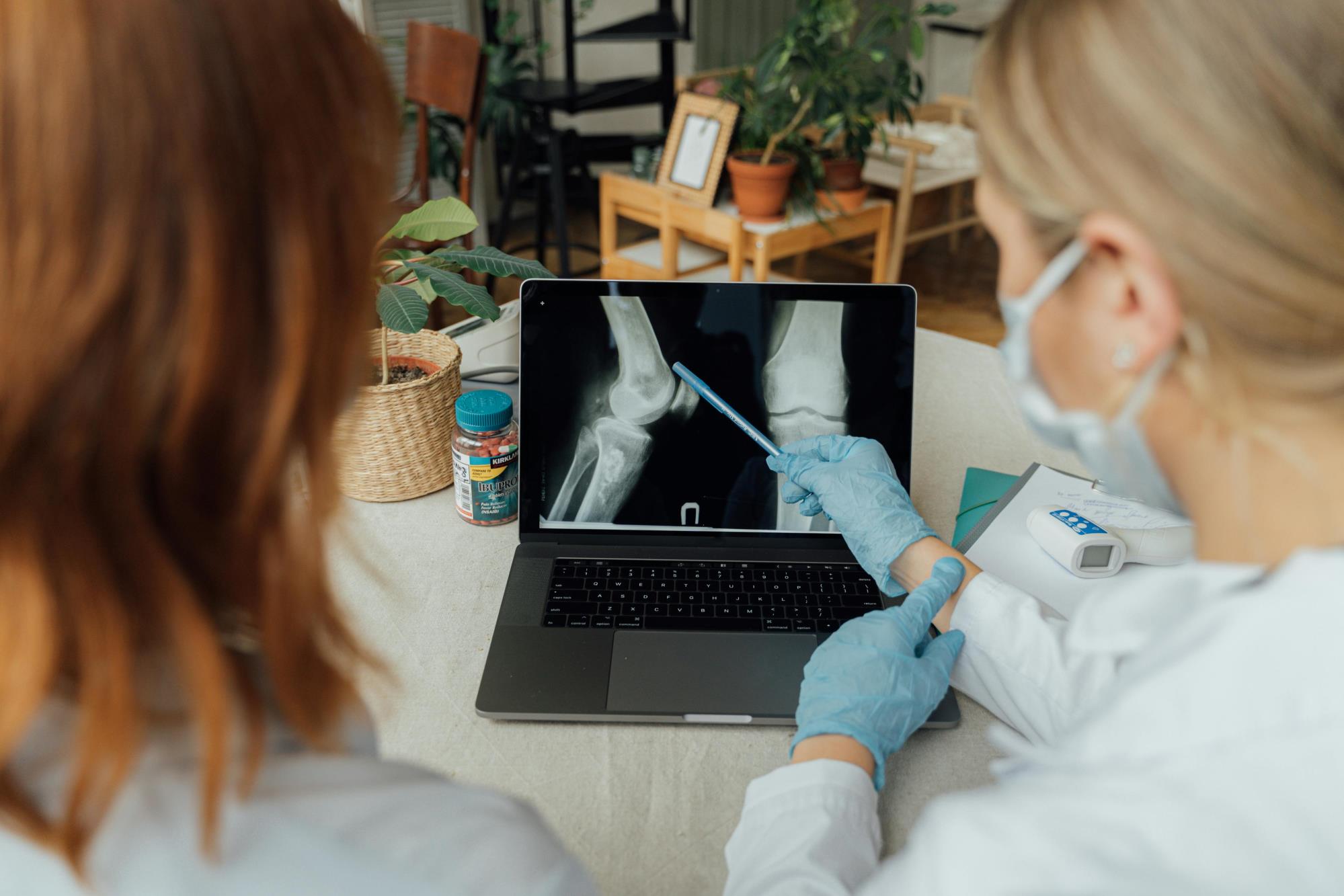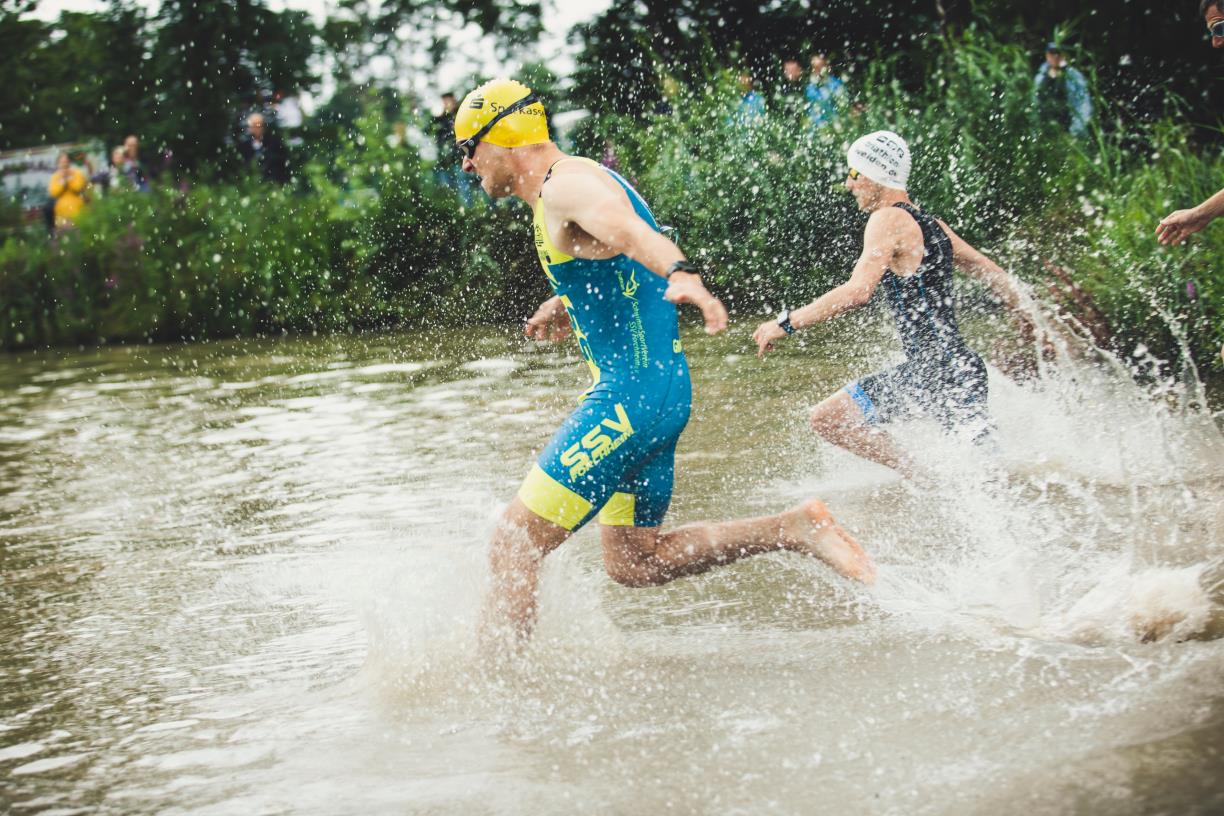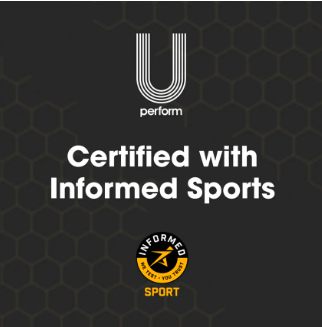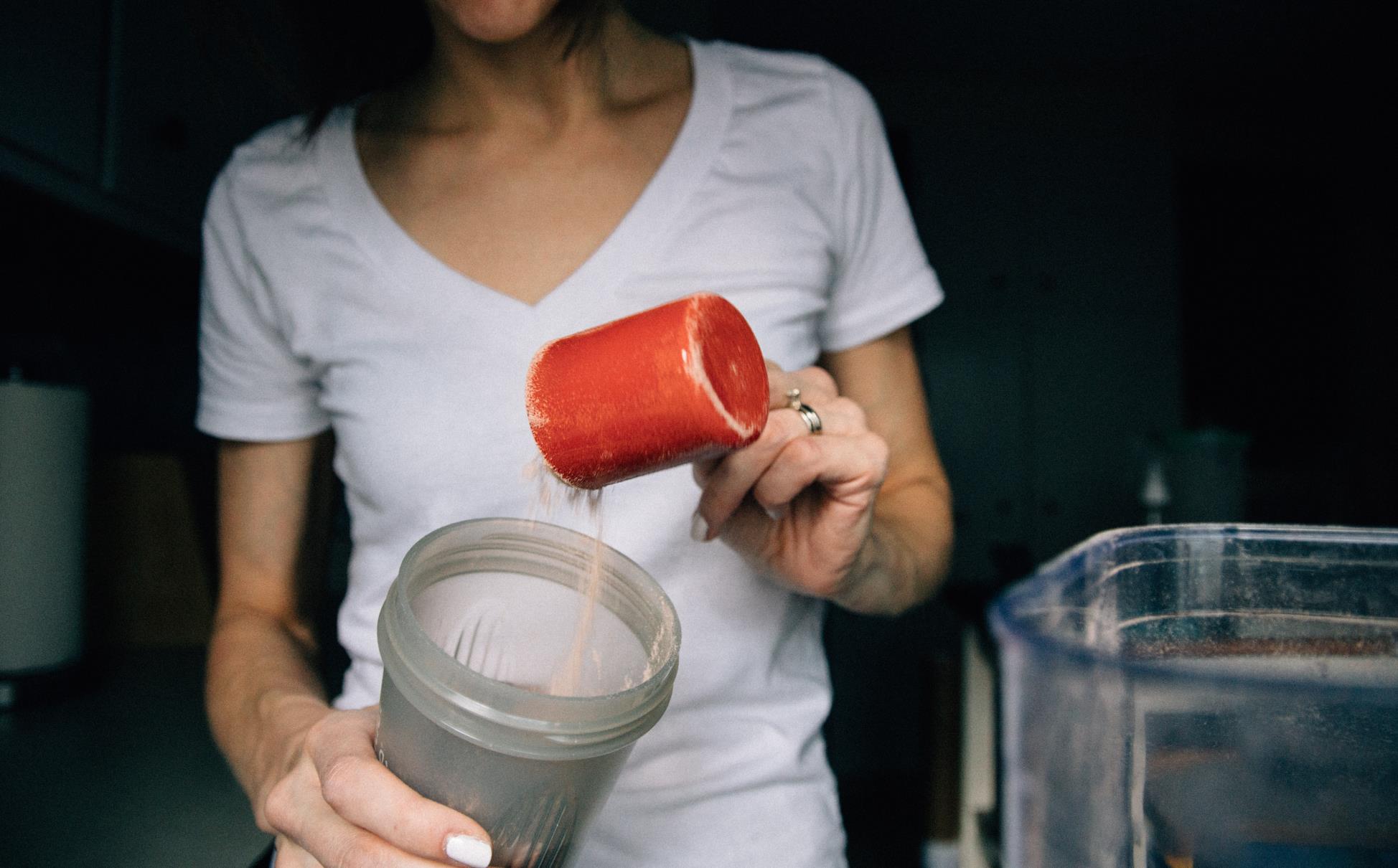Triathletes, Are You Neglecting This Essential Protein? Here's How Collagen Can Take Your Training to the Next Level
 Karen Parnell
January 17, 2023
Karen Parnell
January 17, 2023
.png)
Triathletes, Are You Neglecting This Essential Protein? Here's How Collagen Can Take Your Training to the Next Level
When it comes to training for a triathlon, it's easy to focus on the big things: putting in the miles on the bike, hitting the pool, and logging the time on the roads. But sometimes, it's the little things that can make the biggest difference. And that's where collagen comes in.
Hardly anyone receives enough of it nowadays, primarily due to the fact that modern dietary habits overlook the collagen-rich elements of animals—namely bones, skin, tendons, ligaments, cartilage, gristle, ears, noses, tails, hooves, and feet (even just talking about them may make you feel a bit queasy). Astonishingly, this disregards nearly half of an animal's total weight, a component that our ancestors consumed yet remains largely unrecognised by us.
Fortunately, there exist convenient methods to acquire collagen in the present day. Crafting bone broth from animal joints is an option, as is actively seeking out the tails, drumstick ends, and various other collagen-rich segments of animals that are still offered by butchers. Alternatively, the intake of collagen peptides in the form of powder is also a practical approach.
What is Collagen?
Collagen is a protein that plays a big role in keeping your body in tip-top shape. It's the most abundant protein in your body and makes up about 30% of your protein. It's found in your muscles, tendons, ligaments, and bones and helps to keep them strong and healthy. And when you're training for a triathlon, you need all the help you can get!
Benefits of Collagen for Triathletes
Your Joints
One of the biggest benefits of collagen for triathletes is the support it gives your joints. Collagen is a major component of cartilage, which is the tissue that cushions your joints and helps them move smoothly. When you're putting your body through the rigors of training, your joints can take a beating. Consuming collagen can help keep your joints healthy and reduce your risk of injury.
A 2021 systematic review published in Amino Acids found that people treated with 5 to 15 grams per day of collagen peptide supplementation experienced reduced joint pain and functionality compared to those who didn't take the collagen. Taking this supplement daily may help people suffering from joint pain. However, not everyone will see a reduction in pain, and more research is needed to understand the exact mechanisms.

Get your FREE Athlete Recipe Books
Muscles Recovery and Growth
Collagen also plays a big role in muscle recovery and growth. It provides the building blocks for muscle tissue, which can help improve your muscle strength and endurance. And when you're pushing yourself to the limit, that's a big deal. Collagen can also help reduce muscle soreness and fatigue, which is always welcome when you're in the middle of a tough training session.

Get your FREE 23-Page Athletes Guide to Strength and Conditioning
Skin, Hair, and Nails
But collagen isn't just good for your muscles and joints, it's also great for your skin, hair, and nails. Triathletes spend a lot of time outdoors, which can take a toll on your skin. Collagen can help to hydrate your skin and improve skin elasticity, which can be beneficial for athletes whose skin may be exposed to sun, wind, and other environmental factors during training and competitions. Collagen may also help to soothe your skin and reduce inflammation caused by the friction of the wetsuit, the salt, and the sun.

Photo by Thirdman
Get your FREE Athlete Recipe Books
Hydration, Gut Health, Cardiovascular Health and Endurance
In addition to its physical benefits, collagen can also have a positive impact on the overall well-being of triathletes. Collagen is known to improve hydration levels, support gut health, and improve cardiovascular health and endurance. It can also help to improve sleep quality and recovery, and boost the immune system, which is essential for triathletes who are constantly pushing themselves to the limit.

Get your FREE Athlete Recipe Books
Your Wounds May Heal More Quickly
Collagen is a component of your skin, having it in adequate quantities may help the wound-healing process. A 2020 randomized controlled clinical trial published in Burns found that hydrolyzed-collagen-based supplements may help expedite wound healing in people with 20% to 30% of their body surface burned, reducing their hospital stays.

Photo by Markus Spiske on Unsplash
Get your FREE Swim Workouts for Triathletes E-book
Collagen Supplements and Powders
When it comes to collagen supplementation, it's important to know that there are different types of collagens, and each one has its own unique benefits. For instance, Type I and III collagen are important for skin, hair, nails, and joint health, while Type II collagen is mainly used for cartilage and joint health.
Like us many other types of animals have large sources of collagen in their bodies and so collagen powder is made from collagen sources from various animals.
Bovine collagen is sourced from cow collagen, porcine collagen is sourced from pigs and marine collagen is sourced from fish skin, scales, and body parts.
Vegan collagen is not derived from animal sources, but rather is made from plant-based ingredients. Vegan collagen can be made from a variety of sources such as soy protein, pea protein, rice protein, or algae. These plant-based ingredients are processed in a way that mimics the structure of collagen found in the body and are marketed as a vegan alternative to animal-derived collagen. Some companies also market their products as "collagen boosters" which contain ingredients that are meant to promote the production of collagen within the body, rather than providing collagen itself.
It's important to note, however, that true collagen is a protein that is exclusive to animals, so these plant-based products don't contain collagen but ingredients that may mimic some of its benefits.
What Collagen Product is right for you?
A company called U-Perform co-founded by Professor Greg Whyte uses the latest research to develop their products. Here’s what they say about the different types of collagen.
Understanding which collagen product is right for you and that will suit your needs for training and competition is key to performing and recovering optimally every day. Whether you are completing your first ever parkrun, an already avid gym goer or experienced athlete, optimal recovery and nutrition can make or break your progress towards your goals.
Here’s 3 key considerations to keep in mind:
1. Bovine over Marine. Most peer reviewed studies on collagen supplementation are based on collagen products from a bovine source and it is from these studies that the specific collagen peptides we use here at U Perform are based on. Bovine collagen’s composition is far more like human collagen than marine, and therefore not only is it absorbed more readily by the body, but it is also easier for the body to distribute it to where it’s needed most – your body more easily recognises it to put it simply.
2. Different tools for different jobs. Not all collagen is made equal, much to the dismay of many other brands who would have you believe otherwise. That’s why it’s important to select the right tool (peptide) for the right job. Each tissue, fibre in the human body is built differently and as such requires a different type of collagen to support them.
3. Quality not quantity. In every collagen product we produce we ensure that we follow the science to not only deliver the right peptide for the right job, but also to deliver the correct dosage of collagen too.
Did you know, there are over 30 different types of collagens, and each type performs a slightly different role in the body. Over 90% of the collagen in the human body is type I collagen with the second and third most abundant collagens being Type III (skin, blood vessels, organs, and other elastic tissue) and Type II (articular cartilage) respectively.
If you would like to try science backed U-Perform collagen here’s 10% off using this code: UPKPAR10.
U-Perform has put together a dedicated section on its website for triathletes detailing the benefits to your swimming, cycling, running and strength training. Read more about what types of collagen and how much is needed to help your triathlon training and racing can be found here.
TOP TIP: Collagen powder when mixed with water can be lumpy so I have found using room temperature water (not cold) and a shaker works best. Here's a sustainable shaker you can use made from wheat straw plastic by Nutravita.
Also don't use sparkling water to mix the powder with unless you want your kitchen to look like a school Chemistry lab!

Get your FREE 23-Page Athletes Guide to Strength and Conditioning
Other Collagen Supplement Consideration
Collagen can also have some drawbacks, such as allergic reactions or stomach discomfort, but these are rare. It's also important to note that collagen supplements are not a substitute for a healthy diet, but rather a complement to it. Collagen supplements can be used in conjunction with other popular performance-enhancing supplements such as protein powders, BCAAs, and creatine.
It’s worth noting that any supplementation you consider taking needs to be batch test and listed on a website like the Informed Sport website to ensure it’s not contaminated with banned substances. U-Perform products are listed on the Informed Sport website.
The Collagen Conclusion
Collagen provides a wide range of benefits for triathletes, from supporting joint health to promoting muscle recovery and growth. By incorporating collagen into your training routine, you can help to improve your performance, recover more quickly from intense workouts, and improve your overall health and well-being.
To get the most benefits from collagen, it's important to consume it regularly as part of your diet. Collagen supplements are readily available in the form of powders, capsules, and even protein bars. It can also be found in food sources such as bone broth, fish, and meat.
The way I look at collagen supplements is that even though your body breaks the collagen down when you consume it you know that when your body needs to create collagen it has all the right constituent parts such as amino acids, Vitamin C, Zinc etc to be able to do this it can. It's a bit like banking what you need ready for when you need to withdraw it.
When using collagen supplements or powders you need to consider which is best for you – animal, marine or plant-based products and always make sure they are batch tested and listed on websites like “Informed Sport”.
Interested about nutrition and hydration? You can down load our FREE recipe books here: chilitri.com/easy-links
If you want to know how much macronutrients you need to fuel your training use our Macro and BMR calculator.
Don't want to use Supplements? Boost Naturally with the Collagen Rich Foods
Not everyone wants to turn to supplements and powders so you can help your body produce collagen naturally. Your body creates its own collagen by combining amino acids. The process uses Vitamin C, Zinc, and Copper so you can promote natural collagen production by eating a well-balanced diet.
As you get older your body will naturally produce less collagen which manifests in aching joints, dry skin, weaker muscles and gastrointestinal issues. So if you are older supplements may be the best way to boost your collagen. Collagen skin treatments may be a waste of money however as there are no studies to show they actually work.
How to product collagen naturally
Eating a balanced diet can help you produce collagen naturally. To get the necessary amino acids such as proline and glycine you can eat eggs, bone broth, beans and meat. For vitamin C eat citrus fruits, berries and bell peppers. You also need Zinc and Copper so add meat, shellfish, nuts, whole grains and beans. By far the best way is via bone broth which is made by simmering beef, chicken or fish bones in water. The collagen and other minerals seep into the water delivering a delicious and nutrient dense liquid. This method is not quick (1 to 2 days) so planning is needed.
Vegans can obtain collagen through plant-based sources such as fruits, vegetables, and whole grains, which provide the building blocks (amino acids) necessary for the body to produce its own collagen. Some specific foods that are high in collagen-boosting nutrients include: berries, dark leafy greens, citrus fruits, red and yellow vegetables, nuts, and seeds. Additionally, some vegan supplements such as vitamin C, copper, and proline can help support the body's own collagen production.
Karen Parnell is a Level 3 British Triathlon and IRONMAN Certified Coach, 8020 Endurance Certified Coach, WOWSA Level 3 open water swimming coach and NASM Personal Trainer and Sports Technology Writer.
Karen is currently studying for an MSc in Sports Performance Coaching at the University of Stirling.
Need a training plan? I have plans on TrainingPeaks and FinalSurge:
I also coach a very small number of athletes one to one for all triathlon and multi-sport distances, open water swimming events and running races, email me for details and availability. Karen.parnell@chilitri.com
Get your FREE Guide to Running Speed and Technique
Get your FREE Swim Workouts for Triathletes E-book
Get your FREE Open Water Swimming Sessions E-Book

Photo by Lopez Robin on Unsplash
Get your FREE 23-Page Athletes Guide to Strength and Conditioning
FAQ Collagen for Triathletes
What is collagen?
Collagen is a protein that is found in the body and plays a crucial role in maintaining the health and integrity of our muscles, tendons, ligaments, and bones. It is the most abundant protein in the body and makes up about 30% of the protein in the body.
How does collagen benefit triathletes?
Collagen can help support joint health, promote muscle recovery and growth, and improve the overall health of the skin, hair, and nails. This can be especially beneficial for triathletes, who are constantly putting their bodies through intense training and are at risk of joint pain and injury.
What are the best sources of collagen for triathletes?
Collagen can be found in food sources such as bone broth, fish, and meat. Additionally, collagen supplements are readily available in the form of powders, capsules, and even protein bars.
Can I consume too much collagen?
There is no evidence of collagen being harmful in large doses, but it's always best to consult your doctor or a nutritionist before making any changes to your diet or supplement regimen.
How long does it take for collagen supplements to show results?
The effects of collagen supplements can vary from person to person, but it is typically recommended to take collagen supplements for at least 6-8 weeks to see the full benefits.
Can I consume collagen if I am vegetarian or vegan?
There are vegetarian and vegan sources of collagen such as pea protein and soy protein which are plant-based collagen boosters.
Can collagen help with muscle soreness and fatigue?
Collagen has been shown to aid in muscle recovery and reduce muscle soreness, as well as help with fatigue by providing the building blocks for muscle tissue.
Can collagen help with skin, hair, and nails?
Collagen is a key component of skin, hair and nails, and consuming collagen can help to improve their health and appearance.
References
- "Oral intake of specific bioactive collagen peptides reduces skin wrinkles and increases dermal matrix synthesis" by Proksch, E., Schunck, M., Zague, V., Segger, D., Degwert, J., Oesser, S. (2014)
- "Collagen hydrolysate for the treatment of osteoarthritis and other joint disorders: a review of the literature" by Kim, H.J., Oesser, S. (2019)
- "Collagen peptide supplementation in athletes: a potential to enhance muscle mass and strength" by Zdzieblik, D., Oesser, S., Baumstark, M.W., Gollhofer, A., König, D. (2017)
- "Collagen peptides improve knee osteoarthritis in elderly women: A 6-month randomized, double-blind, placebo-controlled study" by Wang, Y., Wang, Y., Wang, Y., Cai, X., Wang, J., Zhang, Z., Wang, Y. (2018)
- "Collagen hydrolysate in combination with resistance training improves body composition and increases muscle strength in elderly sarcopenic men: a randomized controlled trial" by Proksch, E., Segger, D., Degwert, J., Schunck, M., Zague, V., Oesser, S. (2014)
- "Collagen peptide supplementation in combination with resistance training improves muscle strength and mass in healthy older adults: a meta-analysis" by Gautsch, T.A., König, D., Oesser, S. (2018)
- Dietary Collagen — Should Consumers Believe the Hype? - Today's Dietitian Magazine (todaysdietitian.com)
#traithlontrainingplans #runningtrainingplans #swimmingtrainingplans #triathlon #nutritition

Photo by Kelly Sikkema on Unsplash
